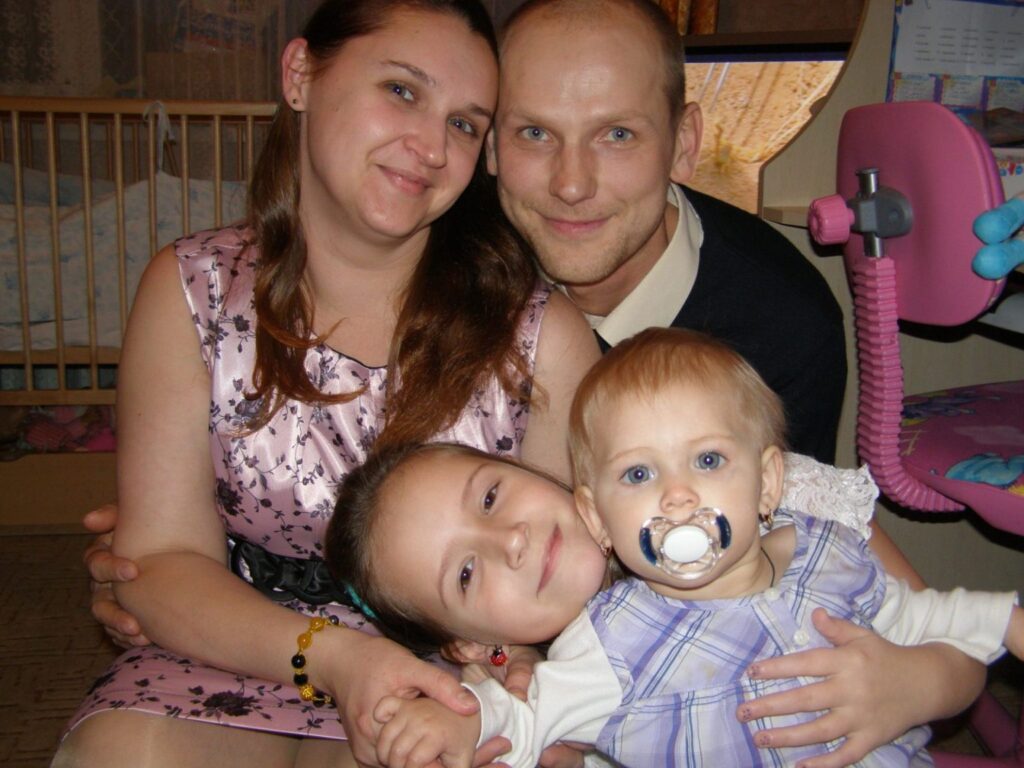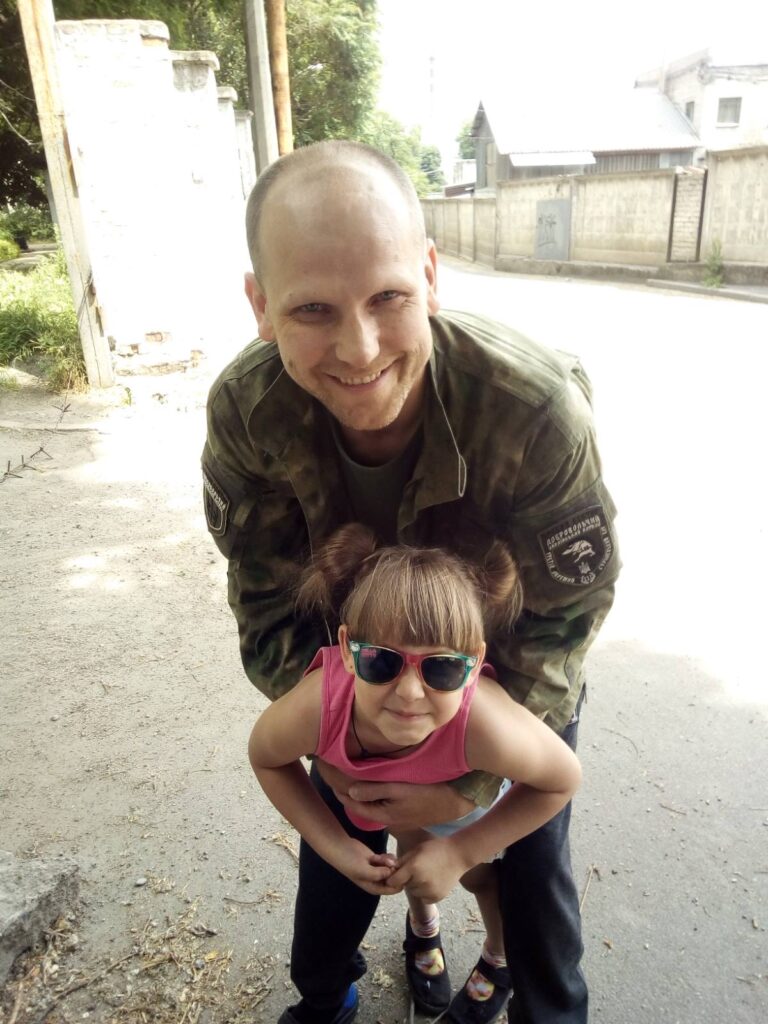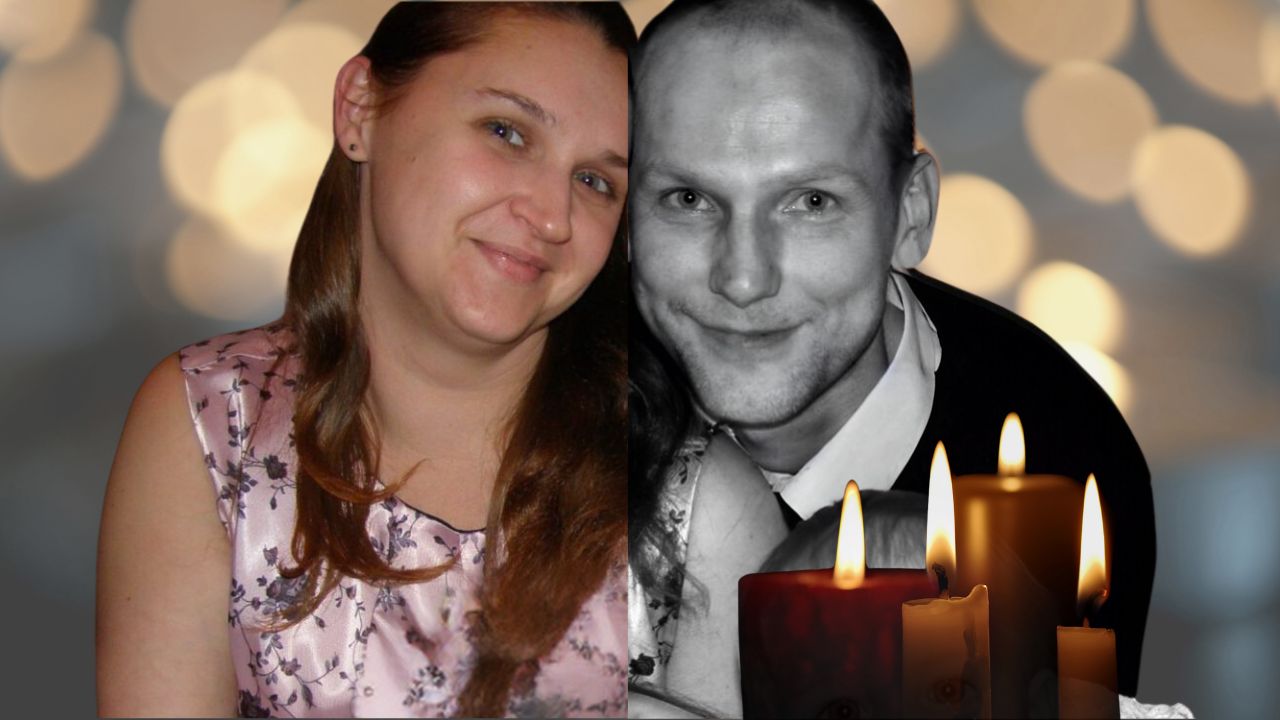Russia’s war in Ukraine tears families apart, makes people leave their homes, cope with the loss of loved ones, and endure fear, uncertainty, and even torture. These circumstances can affect a person’s mental health, leaving scars in the invisible realm of the human mind.
Psychologist Liudmila Bilousova focuses her work particularly on helping Ukrainian women who lose their mental stability due to war and seek psychological rehabilitation.
She works at the psychological rehabilitation program called Recovery during the War, which is organized by VAAD of Ukraine, the Association of Jewish Public Organizations and Communities of Ukraine. There, women learn self-regulation skills and develop emotional intelligence with the help of psychologists and art therapists.
“Mental and emotional stability is crucial for Ukrainian women because they are raising the future generations of the country. Their children could be the ones who will restore Ukraine. For me, helping these women recover their abilities is a fundamental task as a psychologist,” Liudmila shared.
She thinks that the war exacerbated existing mental health issues and created new ones, with many women experiencing emotional instability, aggression, sleep disturbances, anxiety, depression, and apathy.
Liudmila emphasized that despite the presence and continuous work of different rehabilitation centers in Ukraine, the need for mental health support is immense and increasing.
In a previous story of the Scars of War series, we wrote about Yulia, who survived four months in Russian captivity and participated in the Recovery during the War program.
The next story is of Natalia Haponiuk from Dnipro, central Ukraine, who has lost her husband in the war and still cannot accept his death while also trying to raise her two children alone and fighting her mental struggle of losing the loved one.

How the war makes daily life uncertain and chaotic
I am a very organized person and love scheduling. Well, I used to be. I needed to have some plans for the future, at least for the upcoming weekend. But now, I live without a schedule. There is no peace anywhere for me, neither at home nor at work, after my husband Volodymyr died, and we had to identify his remains through a DNA test and bury them in a closed casket.
Sometimes my children say, "Let's go somewhere!" and I reply, "I don't know, we'll see," because I can't promise them anything. We live in complete uncertainty.
It's like a disease, you know, when you're unsure about your future or what will happen to you when you leave your house. We even chose an online school for our nine- and 15-year-old daughters because it feels cozier and calmer at home.
I started regularly forgetting things, and even when I write down and hang little notes with reminders all over the house, I forget to look at them. If I want to take my children to the doctor or take our rat to the vet, I plan these tasks and do only one major event per week, nothing more.
For one year, we hoped Volodymyr would return, so we bought him gifts on different holidays and birthdays. One of them was a kitten, which he always wished for, and we took it from a shelter. My husband also left many things unresolved, and now it’s incredibly complicated because I have to deal with them in addition to family, work, and grief.
I received the remains of my husband in a closed coffin. I only saw photos of what was put inside - underwear, shoes, a uniform, a cap, and I asked them to also put some sweet treats as a gift from me and our children.
After husband’s loss, she ruminates how to raise kids alone
On 23 February 2023, Volodymyr and four of his comrades disappeared after being in a position in the Volnovakha district in the Donetsk direction. The intense battles unfolded there, and they all went missing. Later, the Ukrainian forces retrieved three completely burned bodies that could be identified only via DNA tests.
The first DNA did not confirm that Volodymyr was among the found remains, so we waited further. Only after a whole year, in March 2024, did I receive the final confirmation about the death of my husband. We buried him on 10 April 2024. Most likely, he was killed by a direct hit. Volodymyr served as a machine gunner, and he went to fight voluntarily in 2022.
I cannot realize that this is the end, that he will not return. I ask myself, "What's next? How should I live? How do I plan life? How do I raise kids alone?"
"What's next? How should I live? How do I plan life? How do I raise kids alone?"
How guilt permeates daily life after losing a loved one in the war
I had panic attacks, insomnia, and deterioration of vision. I could not sleep at night, constantly crying, not allowing myself to smile and enjoy life, and not allowing my children to do so either. They could start making noise, and I would say, "Quieter! You can't do this!"
Once, we went to a symphony concert with my daughter, and I constantly berated myself. "How can you attend such events when you don't know where your husband is and what happened to him?"
I didn't want to go anywhere during the whole period when I was looking for my husband. I was afraid of phone calls and asked everyone to write me text messages only. My heart sank with every phone call, thinking it was an investigator telling me that the remains belonged to Volodymyr.
Colleagues at the kindergarten where I have worked all my life seem to support me, but they don't fully understand how difficult it is for me.
Many say, "Well, the time has passed. You should have gotten used to it already."
They cannot grasp that I lived with the hope of my husband's return for a whole year. I truly believed I would find him, even if he was in captivity or maybe wounded, but alive. This hope still does not leave me deep in my soul.

Psychological rehab program helps women cope
Somehow, I agreed to attend a program called Recovery during the War (organized by VAAD of Ukraine) together with my daughters, where we learned from psychologists how to process our traumatic experiences.
We had two more days left until the end of the shift, and that’s when the investigators called me in the evening to confirm the DNA results. I heard what I feared the most: those remains they found belonged to Volodymyr.
Later, I realized how lucky I was at that time to be surrounded by psychologists and women who had gone through similar situations because they supported me hugely.
During this program, I also learned that rejoicing is not betraying the person who has gone missing or died. It is an emotion that helps us live, and it's not something bad if you laugh or rejoice in a new day, life, or the sun.
This helped me a lot because I understood that my children cannot constantly live under stress and be afraid to laugh because I forbid them because I am going through grief and denial.
Every morning, she forces herself to get up and get going
I want to return to when my children and I could communicate normally because now I can talk briefly and then disappear somewhere in my thoughts. Sometimes, all this tension and uncertainty inside me is expressed through anger, and I feel guilty for yelling at my kids, but I find it hard to hold myself back.
Every morning, I overcome my unwillingness to get up from bed and do something, go somewhere. I have to fight it. It's like Groundhog Day for me. I persuade myself to get up because if I wait a minute longer, I will return to the day when I first lost connection with my husband and then received news that he was considered missing.
Every morning, I overcome my unwillingness to get up from bed and do something, go somewhere. I have to fight it. It's like Groundhog Day for me.
I didn't eat, drink, or sleep, and I cried all the time. If I fell asleep, it was only for a short time. I woke up again, cried, looked through family photos for the hundredth time, and called my husband's phone every five minutes, which did not answer because the phone was probably with him when the Russians struck him.
She writes a letter to her dead husband, trying to cope with pain
My psychologist suggested I write letters to my husband if something bothered me. I thought I would write him this and that, but when I actually sat down and stared at a blank paper, everything evaporated from my head; not a single thought remained. I scribbled something, reread it, and realized it was not what I wanted to say to him.

I wanted to say this: “Volodymyr, thank you for every day we spent together. Forgive me for not saving you. I love you deeply and am proud of you. You are a real hero for me and our children. I will make every effort to raise the children with dignity and preserve your memory.”
It hurts me a lot that we could not bury him whole, his whole body, like everyone else.
I am terrified that Russians will capture the territory where my husband died, as it is located close to the front, and they will trample his remains, if there are any left there. For them, it's a pleasure, but for me, it's a loved one who I need. To say it's terrible is to say nothing. I need him badly.
Related:
- Scars of war: Ukrainian servicewoman survives Russian captivity, returns to fight
- “We’re fighting now so our children won’t have to”: How Ukrainians defy Russian control on occupied lands
- Decade after MH17 disaster: 1 in 8 families of victims still grapple with severe grief
- Prominent Ukrainian combat medic Iryna Tsybukh killed on Kharkiv front. Here’s her farewell letter

